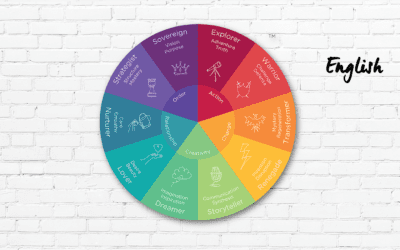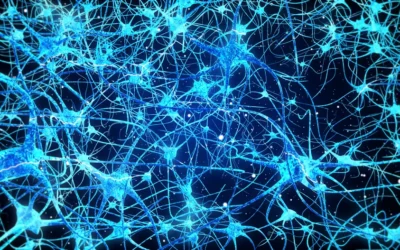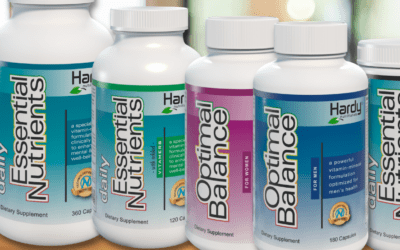 In the ever-evolving landscape of healthcare, science is continually pushing boundaries to uncover novel approaches for improving mental health. One promising avenue gaining traction is synergistic nutrition – a concept where specific combinations of nutrients work together to optimize brain function. While much of this technology is still in its research phase, modern studies are pointing towards exciting pathways that may revolutionize mental health treatment in the future. In this article, we will explore the cutting-edge insights on synergistic nutrition for mental health and how it might shape the future of healthcare.
In the ever-evolving landscape of healthcare, science is continually pushing boundaries to uncover novel approaches for improving mental health. One promising avenue gaining traction is synergistic nutrition – a concept where specific combinations of nutrients work together to optimize brain function. While much of this technology is still in its research phase, modern studies are pointing towards exciting pathways that may revolutionize mental health treatment in the future. In this article, we will explore the cutting-edge insights on synergistic nutrition for mental health and how it might shape the future of healthcare.
Precursors: NAC for Glutathione and SAM-e for Neurotransmitters
Precursors in nutrition are essential compounds found in food that can be transformed into biologically active molecules within the body. Understanding the role of precursors and incorporating foods rich in them into your diet can support various physiological processes, from neurotransmitter synthesis to vitamin and mineral activation. However, it’s crucial to maintain a balanced diet and consider individual factors when using precursors as part of your nutritional strategy. Consulting with a healthcare professional or registered dietitian can provide personalized guidance for optimizing your nutrition.
Precursors for Neurotransmitters and Hormones:
- Neurotransmitter Precursors: Amino acids, such as tryptophan and tyrosine, are precursors for neurotransmitters like serotonin, dopamine, and norepinephrine. These neurotransmitters play crucial roles in mood regulation, motivation, and cognition. Consuming foods rich in these amino acids can potentially support neurotransmitter production.
- Hormone Precursors: In some cases, specific nutrients serve as precursors for hormones. For example, cholesterol is a precursor for the synthesis of steroid hormones, including cortisol and sex hormones like testosterone and estrogen.
3. Using Precursors in Nutrition:
To use precursors effectively in your nutrition, consider the following:
- Dietary Sources: Identify foods that are rich in the precursor compounds you want to utilize. For instance, if you want to support serotonin production, look for foods containing tryptophan, such as turkey, chicken, bananas, and dairy products.
- Balanced Diet: Ensure a balanced diet that provides a variety of nutrients, including precursors. A diverse range of foods can help you obtain a broad spectrum of precursor compounds necessary for various bodily functions.
- Supplementation: In some cases, supplementation with specific precursor compounds may be recommended, especially if you have specific dietary restrictions or health conditions. Consult with a healthcare provider or registered dietitian before starting any supplementation regimen to ensure it’s safe and appropriate for your needs.
- Cooking and Processing: Be mindful of how cooking and food processing methods can affect the availability of precursor compounds. Some precursors may be sensitive to heat, light, or oxygen, so consider preparing foods in ways that preserve their nutrient content.
- Individual Variability: Keep in mind that individual differences, such as genetics and metabolic rate, can influence how efficiently your body converts precursors into active compounds. What works for one person may not work the same way for another.
NAC (N-Acetylcysteine) and Glutathione
Glutathione, often referred to as the body’s master antioxidant, plays a vital role in protecting brain cells from oxidative damage. Recent research suggests that NAC, a precursor to glutathione, can be a game-changer in mental health. NAC has shown potential in reducing symptoms of depression, bipolar disorder, and obsessive-compulsive disorder (OCD). It enhances the body’s ability to produce glutathione, which aids in detoxification and reducing oxidative stress – both of which are crucial for mental well-being.
SAM-e (S-Adenosylmethionine) and Neurotransmitters
SAM-e is another exciting compound with significant implications for mental health. It serves as a precursor for neurotransmitters like serotonin, dopamine, and norepinephrine. These neurotransmitters play pivotal roles in regulating mood and emotional well-being. Research suggests that SAM-e supplementation may alleviate symptoms of depression, anxiety, and other mood disorders.
Tryptophan and Serotonin
Tryptophan is an essential amino acid that serves as a precursor for serotonin, a neurotransmitter that plays a crucial role in regulating mood, anxiety, and sleep. Adequate tryptophan intake through diet or supplementation can help support healthy serotonin levels, potentially improving mental well-being.
Tyrosine and Dopamine
Tyrosine is an amino acid precursor for dopamine, a neurotransmitter associated with pleasure, reward, and motivation. Supplementation with tyrosine may enhance dopamine production and, in turn, positively impact mood and cognitive function.
5-HTP (5-Hydroxytryptophan)
5-HTP is a compound derived from tryptophan and is a direct precursor to serotonin. It is commonly used as a supplement to potentially alleviate symptoms of depression, anxiety, and insomnia by promoting serotonin synthesis.
Choline and Acetylcholine
Choline is a nutrient that serves as a precursor to acetylcholine, a neurotransmitter essential for memory, learning, and muscle control. Adequate choline intake can support cognitive function and memory.
L-Tyrosine and Epinephrine/Norepinephrine
L-tyrosine is another amino acid that serves as a precursor for epinephrine and norepinephrine, neurotransmitters involved in the body’s stress response and mood regulation. Supplementing with L-tyrosine may enhance the production of these neurotransmitters, potentially improving stress resilience.
GABA (Gamma-Aminobutyric Acid) Precursors
GABA is an inhibitory neurotransmitter that helps regulate anxiety and stress. L-theanine can improve stress and mood. Precursors like glutamine and glutamic acid can indirectly influence GABA levels by promoting its synthesis in the brain.
Taurine for GABA Regulation
Taurine is an amino acid that has been associated with the regulation of GABA receptors in the brain. It may have a calming effect on the nervous system, potentially benefiting individuals dealing with anxiety and mood disorders.
L-Tyrosine for Thyroid Function
L-tyrosine is also involved in the production of thyroid hormones. Proper thyroid function is essential for mood regulation, energy levels, and overall mental health.
Phenylalanine and Mood Regulation
Phenylalanine is an amino acid that can be converted into tyrosine, which, as mentioned earlier, is a precursor for dopamine. Maintaining adequate phenylalanine levels may indirectly impact mood and emotional well-being.
Methionine for Methylation Processes
Methionine is an essential amino acid that plays a vital role in methylation processes in the body. Methylation is involved in the production of neurotransmitters and the regulation of mood.
These precursors show promise in supporting mental health, individual responses may vary. Consultation with a healthcare professional is advisable before considering any supplementation, as they can provide personalized recommendations based on your specific needs and medical history. Additionally, a balanced diet rich in nutrients is foundational for overall mental well-being, and dietary changes should always be part of any mental health strategy.
Genetic Testing for Individualized Nutrition
One size does not fit all when it comes to nutrition and mental health. Genetic testing is paving the way for personalized nutrition plans. By analyzing an individual’s genetic makeup, healthcare professionals can tailor nutrient recommendations to optimize mental health. Understanding how your genes impact nutrient metabolism can help you make informed choices about your diet and supplementation.
Advancements in genetic science have opened up exciting possibilities for personalized healthcare, and genetic testing for nutrition is at the forefront of this revolution. This innovative approach allows individuals to gain valuable insights into their unique genetic makeup, revealing how their genes impact their nutritional needs and how they can optimize their diet for better health. Here are some specific things that genetic testing for nutrition can discover:
1. Nutrient Metabolism
Genetic testing can uncover how your body metabolizes essential nutrients. For example:
- Vitamin D: Variations in genes like CYP2R1 and VDR can affect how efficiently your body processes and utilizes vitamin D. This information can guide recommendations for vitamin D supplementation or sun exposure.
- Folate: Genetic variants in MTHFR can influence folate metabolism, potentially affecting your susceptibility to conditions like neural tube defects and your need for folate-rich foods or supplements.
2. Macronutrient Sensitivity
Genetic testing can shed light on your sensitivity to macronutrients, helping you tailor your diet to your unique requirements. For instance:
- Carbohydrate Sensitivity: Genetic variants linked to insulin resistance or carbohydrate metabolism can indicate whether you might benefit from a lower-carb or higher-carb diet for better blood sugar control.
- Fat Sensitivity: Variations in genes like FTO can provide insights into your predisposition to obesity and your ability to metabolize fats. This information can guide your fat intake and dietary choices.
3. Dietary Responses
Genetic testing can predict how your body responds to specific dietary components, such as:
- Caffeine: Variations in genes like CYP1A2 can determine how fast or slow you metabolize caffeine. This can influence your tolerance to caffeine and how it affects your sleep and overall health.
- Lactose: Genetic variants associated with lactase persistence or intolerance can reveal whether you are likely to experience digestive discomfort after consuming dairy products.
4. Taste and Food Preferences
Your genes can influence your taste receptors and food preferences:
- Bitter Taste: Genetic variants in TAS2R38 can impact your perception of bitterness, potentially influencing your preference for bitter foods like dark leafy greens or cruciferous vegetables.
- Sweet Taste: Variations in genes related to sweet taste receptors can affect your preference for sugary foods and your likelihood of consuming excess sugar.
5. Nutrient Deficiencies
Genetic testing can identify your susceptibility to nutrient deficiencies:
- Iron: Genetic variants can indicate whether you are more likely to have an increased risk of iron deficiency anemia and may require more dietary iron or supplementation.
- Vitamin B12: Variations in genes related to vitamin B12 metabolism can reveal your risk of deficiency and help determine if you need to incorporate more B12-rich foods into your diet.
6. Weight Management
Genetic testing can provide insights into your genetic predisposition to obesity and your ability to lose or gain weight:
- Obesity Risk: Variants in genes like FTO and MC4R are associated with obesity risk. Knowing your genetic predisposition can help you make informed choices to manage your weight.
7. Food Allergies and Sensitivities
Certain genetic variants can increase your susceptibility to food allergies or sensitivities:
- Gluten Sensitivity: Genetic testing can identify your risk of gluten sensitivity or celiac disease, which may require you to adopt a gluten-free diet.
8. Response to Exercise and Physical Activity
Some genetic markers can reveal how your body responds to exercise and physical activity:
- Endurance vs. Power: Genetic variants can indicate whether you are genetically predisposed to excel in endurance sports or power-based activities, helping you tailor your exercise regimen accordingly.
Overall, genetic testing for nutrition can provide personalized insights into your dietary requirements, helping you make informed choices that optimize your health and well-being. It’s important to note that genetic information is just one piece of the puzzle, and lifestyle factors also play a significant role in determining your overall health. Consulting with a healthcare professional or registered dietitian who specializes in genetic nutrition can help you interpret and apply your genetic test results effectively.
Gut Bacteria: A Key Player in Mental Health
Recent studies have shed light on the gut-brain connection and its impact on mental health. Researchers are exploring the idea of seeding the gut with specific bacterial species to produce desired byproducts that may influence mental well-being. This emerging field, known as psychobiotics, aims to harness the power of gut bacteria to improve mood, reduce anxiety, and enhance cognitive function. While this technology is still in its infancy, it holds great promise for the future of mental health treatment.
The intricate connection between the gut and the brain, often referred to as the “gut-brain axis,” has gained significant attention in recent years. Emerging research suggests that specific species of gut bacteria, known as probiotics, play a pivotal role in mental health. These beneficial microbes can influence mood, reduce anxiety and depression, and potentially improve cognitive function. Let’s delve into some well-known species of gut bacteria and what they need to digest to produce the best outcomes for mental health.
1. Lactobacillus and Bifidobacterium
Species: Lactobacillus and Bifidobacterium are two of the most widely recognized genera of probiotics.
Benefits: These bacteria are associated with improved mood and reduced symptoms of anxiety and depression. They are thought to achieve this by influencing neurotransmitter production, such as serotonin, which plays a crucial role in regulating mood.
Nutrient Needs: Lactobacillus and Bifidobacterium thrive on dietary fiber, particularly inulin and fructooligosaccharides (FOS). These complex carbohydrates serve as prebiotics, providing a food source for these beneficial bacteria.
2. Bacteroides
Species: Bacteroides is another prevalent genus of gut bacteria.
Benefits: Research suggests that a healthy balance of Bacteroides may contribute to better emotional well-being and cognitive function. These bacteria may help reduce inflammation, which is linked to mood disorders.
Nutrient Needs: Bacteroides feed on dietary fiber as well, particularly resistant starches found in foods like legumes, whole grains, and unripe bananas.
3. Escherichia coli (E. coli) Nissle 1917
Species: A specific strain of E. coli known as Nissle 1917 has demonstrated potential benefits for mental health.
Benefits: This strain has been studied for its role in reducing symptoms of depression and anxiety. It may exert its effects by modulating the gut-brain axis and reducing inflammation.
Nutrient Needs: E. coli Nissle 1917 appears to thrive on a diverse diet, making it important to maintain a balanced and varied intake of foods.
4. Akkermansia muciniphila
Species: Akkermansia muciniphila is a less common but highly interesting gut bacterium.
Benefits: This bacterium has been associated with improved mental health, particularly in reducing symptoms of depression. It may contribute to mood regulation by supporting the gut barrier function and reducing inflammation.
Nutrient Needs: Akkermansia muciniphila primarily feeds on mucin, a glycoprotein found in the gut lining. A diet rich in soluble fibers, such as pectin and polyphenols, may help promote the growth of this beneficial bacterium.
5. Faecalibacterium prausnitzii
Species: Faecalibacterium prausnitzii is another noteworthy gut bacterium.
Benefits: This bacterium is known for its potential role in reducing inflammation and promoting overall gut health. Its anti-inflammatory properties may indirectly contribute to better mental health by mitigating systemic inflammation.
Nutrient Needs: Faecalibacterium prausnitzii thrives on complex carbohydrates, including dietary fiber from a variety of plant-based sources.
Incorporating a diverse range of fiber-rich foods into your diet, such as fruits, vegetables, whole grains, legumes, and nuts, can help support the growth of these beneficial gut bacteria. Additionally, consuming fermented foods like yogurt, kefir, kimchi, and sauerkraut can introduce probiotic strains into your gut, potentially enhancing mental health outcomes. However, individual responses to probiotics can vary, so it’s advisable to consult with a healthcare provider before making significant dietary changes or starting
Antioxidants and Inflammation: Microglia’s Role
Microglia are immune cells in the brain that play a crucial role in maintaining neural health. Chronic inflammation and oxidative stress can lead to microglial dysfunction, which is linked to various mental health disorders. Antioxidants, such as those found in fruits, vegetables, and supplements, can help combat oxidative stress and reduce inflammation in the brain. Understanding the role of antioxidants in supporting microglial health may lead to innovative interventions for mental health conditions.
Enhancing Nutrient Bioavailability
These combinations and techniques demonstrate the importance of considering nutrient bioavailability when planning a diet or supplementation regimen aimed at improving mental health. Maximizing the body’s ability to absorb and utilize essential nutrients can play a significant role in supporting overall well-being. As the field of synergistic nutrition continues to evolve, these strategies hold promise for enhancing mental health outcomes in the future. Stay tuned for further advancements in this dynamic field, where nutrition plays a pivotal role in promoting mental well-being.
To fully harness the benefits of specific nutrients, it’s essential to consider their bioavailability. Bioavailability refers to the extent and rate at which a nutrient is absorbed and utilized by the body. One example of enhancing bioavailability is the use of black pepper to improve the absorption of curcumin, a powerful anti-inflammatory compound found in turmeric. By exploring innovative ways to make nutrients more bioavailable, we can maximize their impact on mental health.
1. Piperine (Black Pepper) and Curcumin (Turmeric)
As mentioned, piperine found in black pepper enhances the absorption of curcumin, the active compound in turmeric. This combination is known to significantly improve the bioavailability of curcumin, allowing for its anti-inflammatory properties to be more effectively utilized by the body.
2. Vitamin C and Iron
Consuming vitamin C-rich foods alongside iron-rich foods or supplements can enhance the absorption of iron. This combination is particularly important for individuals at risk of iron deficiency anemia, as it helps the body absorb and utilize iron more efficiently.
3. Healthy Fats and Fat-Soluble Vitamins
Fat-soluble vitamins, such as vitamins A, D, E, and K, are best absorbed in the presence of dietary fats. Incorporating sources of healthy fats like avocado, nuts, and olive oil into meals can improve the bioavailability of these vitamins.
4. Vitamin D and Magnesium
Magnesium plays a role in activating vitamin D in the body. Ensuring adequate magnesium levels can enhance the effectiveness of vitamin D in supporting mental health and overall well-being.
5. Quercetin and Vitamin C
Quercetin, a flavonoid found in various fruits and vegetables, can enhance the bioavailability of vitamin C. This combination may boost the body’s ability to absorb and utilize vitamin C’s immune-boosting and antioxidant properties.
6. Lutein and Zeaxanthin with Fat
Lutein and zeaxanthin, important for eye health and potentially cognitive function, are fat-soluble compounds. Consuming them with dietary fats can improve their absorption.
7. Calcium and Vitamin D
Vitamin D aids in the absorption of calcium in the gut. Pairing calcium-rich foods or supplements with sufficient vitamin D ensures the body can utilize calcium for bone health and nerve function effectively.
8. Zinc and Copper Balance
Maintaining a proper balance between zinc and copper intake is essential for both minerals’ bioavailability and overall health. Imbalances can affect cognitive function and mood regulation.
9. Prebiotics and Probiotics
Prebiotic fiber, found in foods like garlic, onions, and bananas, can enhance the growth and activity of beneficial gut bacteria when consumed alongside probiotics. A healthy gut microbiome is increasingly recognized for its role in mental health.
10. Green Tea and Lemon
The antioxidants in green tea can be better absorbed when combined with vitamin C from lemon juice. This simple combination can increase the bioavailability of green tea’s health-promoting compounds.
Quercetin and Phosphatidylcholine (PPC): A Powerful Duo for Health
In the quest for optimal health and well-being, individuals are increasingly turning to natural compounds and supplements to support their bodies. Among these, quercetin and phosphatidylcholine (PPC) have gained attention for their potential health benefits. These two compounds, when used together, can form a powerful combination, offering a range of advantages for various aspects of health and wellness.
Understanding Quercetin
Quercetin is a flavonoid, a type of plant pigment found in a variety of fruits, vegetables, and beverages like tea. It is renowned for its antioxidant properties and numerous potential health benefits. As an antioxidant, quercetin helps neutralize harmful free radicals in the body, which can contribute to aging and various chronic diseases.
The Role of Phosphatidylcholine (PPC)
Phosphatidylcholine, often abbreviated as PPC, is a phospholipid molecule that is a crucial component of cell membranes in the body. It is also a key constituent of lecithin, which is commonly derived from soybeans and used as a dietary supplement. PPC is essential for maintaining cell integrity and facilitating various cellular processes, making it an important element for overall health.
The Synergy Between Quercetin and PPC
When quercetin and PPC are combined, they can potentially enhance each other’s bioavailability and effectiveness in the body. This synergy can lead to a range of health benefits:
1. Improved Absorption: Quercetin is known for its limited bioavailability, meaning that the body struggles to absorb and utilize it efficiently when taken alone. However, when combined with PPC, the absorption of quercetin can be enhanced, allowing for its full range of antioxidant and anti-inflammatory benefits to take effect.
2. Enhanced Cellular Health: PPC, as a vital component of cell membranes, plays a significant role in maintaining the structural integrity and function of cells. When combined with quercetin’s antioxidant properties, it can help protect cells from oxidative stress and damage, potentially supporting overall cellular health.
3. Antioxidant and Anti-Inflammatory Benefits: Quercetin’s antioxidant and anti-inflammatory properties complement PPC’s cellular protection capabilities. This combination may be particularly beneficial for reducing inflammation and oxidative stress in various tissues and organs throughout the body.
4. Cardiovascular Support: Some research suggests that the combination of quercetin and PPC may offer cardiovascular benefits, such as improving cholesterol levels and supporting healthy blood vessel function. These effects can contribute to heart health and reduce the risk of cardiovascular diseases.
Using Quercetin and PPC
Both quercetin and PPC are available as dietary supplements, often in the form of capsules or tablets. The recommended dosage can vary depending on individual health goals and needs, so it’s advisable to consult with a healthcare provider before starting any new supplement regimen.
In conclusion, quercetin and PPC form a compelling duo in the realm of natural health and wellness. Their combined antioxidant, anti-inflammatory, and cellular support properties make them a valuable addition to a balanced diet and overall health strategy. As with any supplement, it’s essential to approach their use with informed guidance, considering individual health conditions and goals. When used wisely, quercetin and PPC can contribute to better health and well-being.
Conclusion:
The field of synergistic nutrition for mental health is a dynamic and promising area of research. Precursors like NAC and SAM-e, genetic testing for personalized nutrition plans, manipulating gut bacteria for desired outcomes, understanding microglial function, and enhancing nutrient bioavailability are all exciting avenues that may revolutionize mental health treatment in the future. While much work remains to be done, these advancements offer hope for a brighter future where nutrition plays a central role in promoting mental well-being. Stay tuned as science continues to unravel the mysteries of synergistic nutrition for mental health, paving the way for innovative solutions in the years to come.
Did you enjoy this article? Checkout the podcast here: https://gettherapybirmingham.podbean.com/
Bibliography:
- Akbari, M., Ostadmohammadi, V., Tabrizi, R., Lankarani, K. B., Heydari, S. T., Amirani, E., … & Asemi, Z. (2019). The effects of alpha-lipoic acid supplementation on inflammatory markers among patients with metabolic syndrome and related disorders: a systematic review and meta-analysis of randomized controlled trials. Nutrition & metabolism, 16(1), 1-12.
- Berk, M., Williams, L. J., Jacka, F. N., O’Neil, A., Pasco, J. A., Moylan, S., … & Maes, M. (2013). So depression is an inflammatory disease, but where does the inflammation come from?. BMC medicine, 11(1), 1-16.
- Bozzatello, P., Brignolo, E., De Grandi, E., & Bellino, S. (2016). Supplementation with omega-3 fatty acids in psychiatric disorders: a review of literature data. Journal of clinical medicine, 5(8), 67.
- Clapp, M., Aurora, N., Herrera, L., Bhatia, M., Wilen, E., & Wakefield, S. (2017). Gut microbiota’s effect on mental health: The gut-brain axis. Clinics and practice, 7(4).
- Fernstrom, J. D. (2005). Branched-chain amino acids and brain function. The Journal of nutrition, 135(6), 1539S-1546S.
- Grima, N. A., Pase, M. P., Macpherson, H., & Pipingas, A. (2012). The effects of multivitamins on cognitive performance: a systematic review and meta-analysis. Journal of Alzheimer’s Disease, 29(3), 561-569.
- Larrieu, T., & Layé, S. (2018). Food for mood: relevance of nutritional omega-3 fatty acids for depression and anxiety. Frontiers in physiology, 9, 1047.
- Patel, D., & Sharma, S. (2022). Quercetin. In StatPearls [Internet]. StatPearls Publishing.
- Rao, T. S., Asha, M. R., Ramesh, B. N., & Rao, K. J. (2008). Understanding nutrition, depression and mental illnesses. Indian journal of psychiatry, 50(2), 77.
- Sarris, J., Logan, A. C., Akbaraly, T. N., Amminger, G. P., Balanzá-Martínez, V., Freeman, M. P., … & Jacka, F. N. (2015). Nutritional medicine as mainstream in psychiatry. The Lancet Psychiatry, 2(3), 271-274.
Further Reading:
- “Brain Maker” by David Perlmutter, MD – This book explores the connection between gut microbes and brain health, offering insights into how nutrition can influence mental well-being.
- “The Happiness Diet” by Tyler G. Graham and Drew Ramsey, MD – The authors present a guide to using food to boost mood, improve energy levels, and support overall brain function.
- “The Omnivore’s Dilemma” by Michael Pollan – While not specifically focused on mental health, this book provides a thought-provoking exploration of the modern food industry and its impact on our diets and well-being.
- “The UltraMind Solution” by Mark Hyman, MD – Dr. Hyman’s book offers a comprehensive approach to addressing mental health issues through nutrition, lifestyle changes, and functional medicine.
- “Nutrition Essentials for Mental Health: A Complete Guide to the Food-Mood Connection” by Leslie Korn, Ph.D. – This book is a detailed guide for clinicians and individuals interested in understanding the role of nutrition in mental health.
- “The Psychobiotic Revolution” by Scott C. Anderson, John F. Cryan, and Ted Dinan – This book delves into the emerging field of psychobiotics and how specific gut bacteria may influence mental health.
- “The New Encyclopedia of Vitamins, Minerals, Supplements, and Herbs” by Nicola Reavley – A comprehensive reference guide to vitamins, minerals, and other nutritional supplements and their potential health benefits.
- “Nutrigenomics and Nutrigenetics in Functional Foods and Personalized Nutrition” edited by Lynnette R. Ferguson – This academic text explores the role of genetic variations in individual responses to nutrients and the potential for personalized nutrition.
- “The Better Brain” by Bonnie J. Kaplan, Ph.D., and Julia J. Rucklidge, Ph.D. – The authors present research on the use of micronutrients in supporting mental health and cognitive function.
- “This Is Your Brain on Food” by Uma Naidoo, MD – A Harvard-trained psychiatrist explores the connections between nutrition and mental health, offering insights and practical advice for using food to support brain function and emotional well-being.
Influential Psychologists


























0 Comments